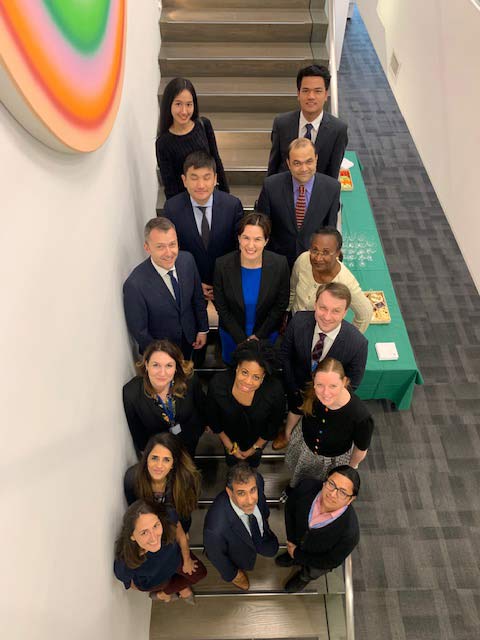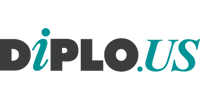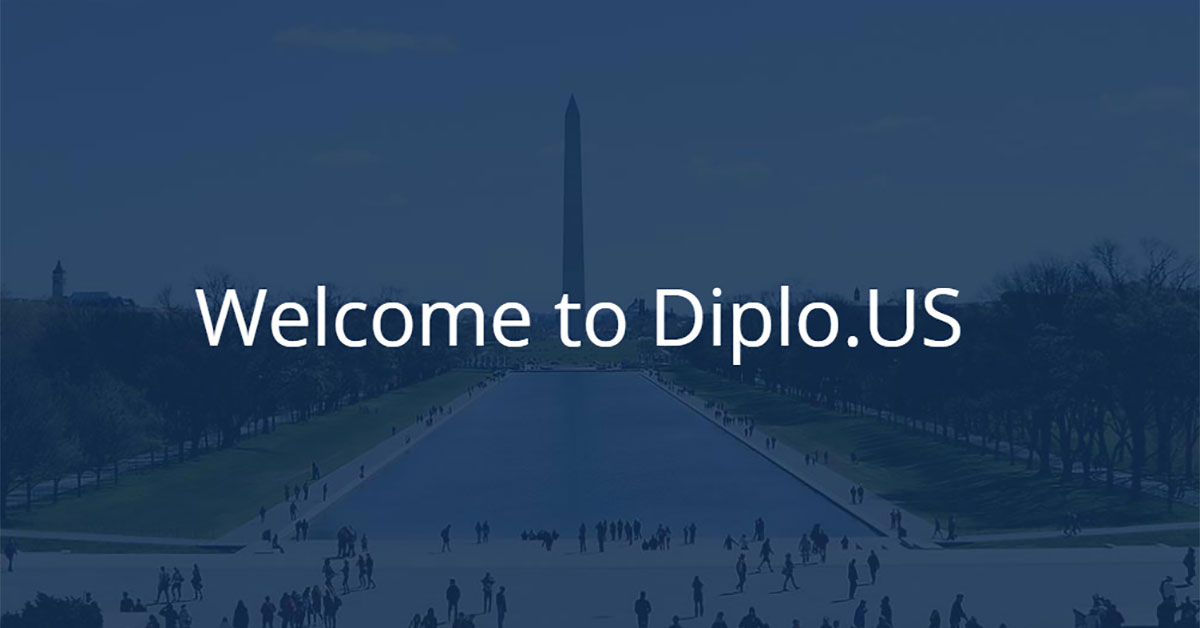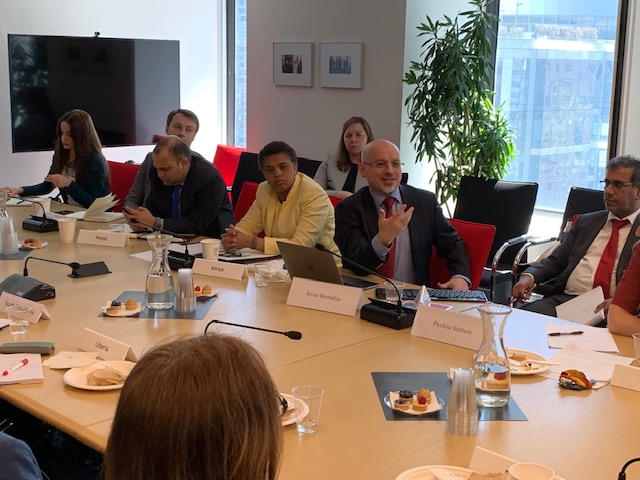Guest Post on About.US: Dustin Loup
Every so often a domain name matches an organization’s name perfectly.The non-profit, Diplo.US, is one of those cases.
Diplo US was founded last year, in 2018, to increase the capacity of individuals and institutions to navigate the unique and complex intersection of diplomacy and digital policy. The non-profit aims to increase the capacity to follow and engage in digital policy and diplomacy. Still in its early days, Diplo.US focuses its efforts on two main tracks of work: organizing training courses and producing studies.
Origins of Diplo US
Diplo US was established to provide a US partner for the DiploFoundation, which is based in Europe and focused globally. The vision for Diplo emerged out of a project that started in 1992 at the Mediterranean Academy of Diplomatic Studies in Malta that was created to introduce Information and Communication Technology (ICT) tools to the practice of diplomacy.

The creation of a Diplo US was a natural evolution of the DiploFoundation’s work, continuing to build tools that aim to improve the processes at the intersection of diplomacy and digital policy in both traditional and non-traditional ways.
Demystifying Digital Policy and Diplomacy
In its first year, Diplo US organized and carried out an 8-week “Introduction to Digital Policy and Diplomacy” for diplomats at UN missions in New York, which ran from March to May. The course was designed specifically to benefit diplomats who follow Internet governance (IG) and other Internet-related policy fields. The courses brought it industry experts to speak on a range of important issues, including:
- Global Internet infrastructure: understanding how the Internet functions;
- Cybersecurity: making the Internet secure, safe, and stable;
- Legal issues: digital applications and cases across jurisdictions;
- Economic issues: understanding the global issues and their applications to digital commerce, investment, and innovation;
- Development: the importance of digital policies that support implementation of the sustainable development goals (SDGs) and reduction of digital divides, including the sociocultural issues of multilingualism and cultural diversity;
- Human rights issues: implications for offline and online human rights, including protection of privacy, freedom of expression and other important issues.
With the success of the initial course, plans are underway for a similar course in Washington, DC for stakeholders. Diplo US will continue to organize these courses as needed in New York, Washington, DC and other locations.
Mapping Innovation Hubs and Diplomacy
In a direct response to the growing need for governments to have dialogue with the US tech and innovation sector, Diplo US has undertaken studies on how countries interact with tech and innovation hubs in the US. The initial studies focused on mapping the Bay Area and the Boston innovation ecosystem, based on the trend of governments establishing consulates and innovation centers in these hubs. Both studies were undertaken to raise awareness of the importance for governments to have a presence in the US tech hubs and to showcase the different ways it can be achieved.
The research and interviews with diplomats engaging with the tech ecosystem in San Francisco and Boston provide unique insight into the models of diplomatic representation, types of engagement with the tech community, as well as the benefits and challenges they face. Importantly, these reports also identified the training needs for diplomats that are planning to engage with the US tech and innovation ecosystem.
These reports seek to serve as a guide and a source of inspiration for countries currently considering engagement with the tech and science hubs in the US. SInce this is a rapidly developing field, Diplo US will consider updates to current reports and mapping other US hubs in the future based on evolving needs.
Choosing a .US Domain Name
The following is provided directly from Diplo US when asked about why they chose .US.
When deciding on the domain name and its extension, it was quite an easy decision process. We knew we wanted to be called Diplo and we wanted to give the organization a clear US focus, to differentiate from our partner organization, DiploFoundation, which operates globally. Therefore Diplo US was the choice of the organization name – and having the luxury of having the exact domain name used and landing diplo.us made the decision quite easy.


